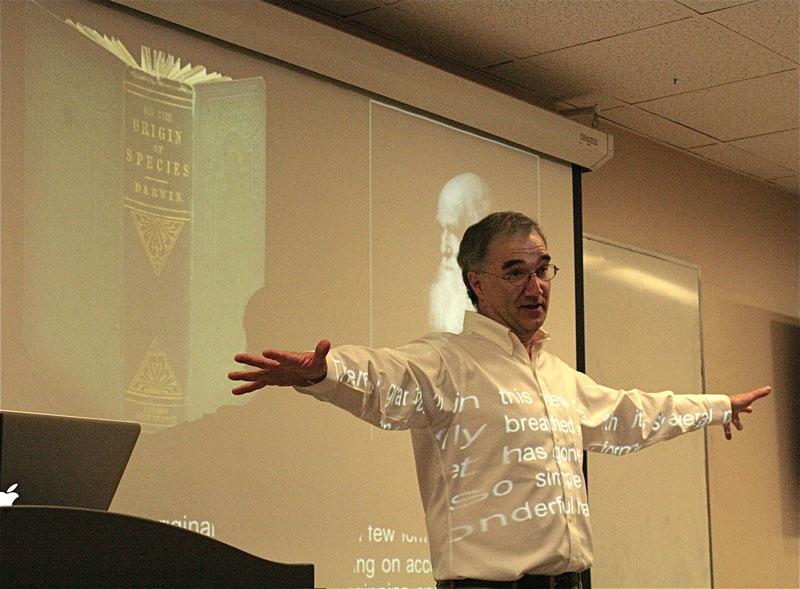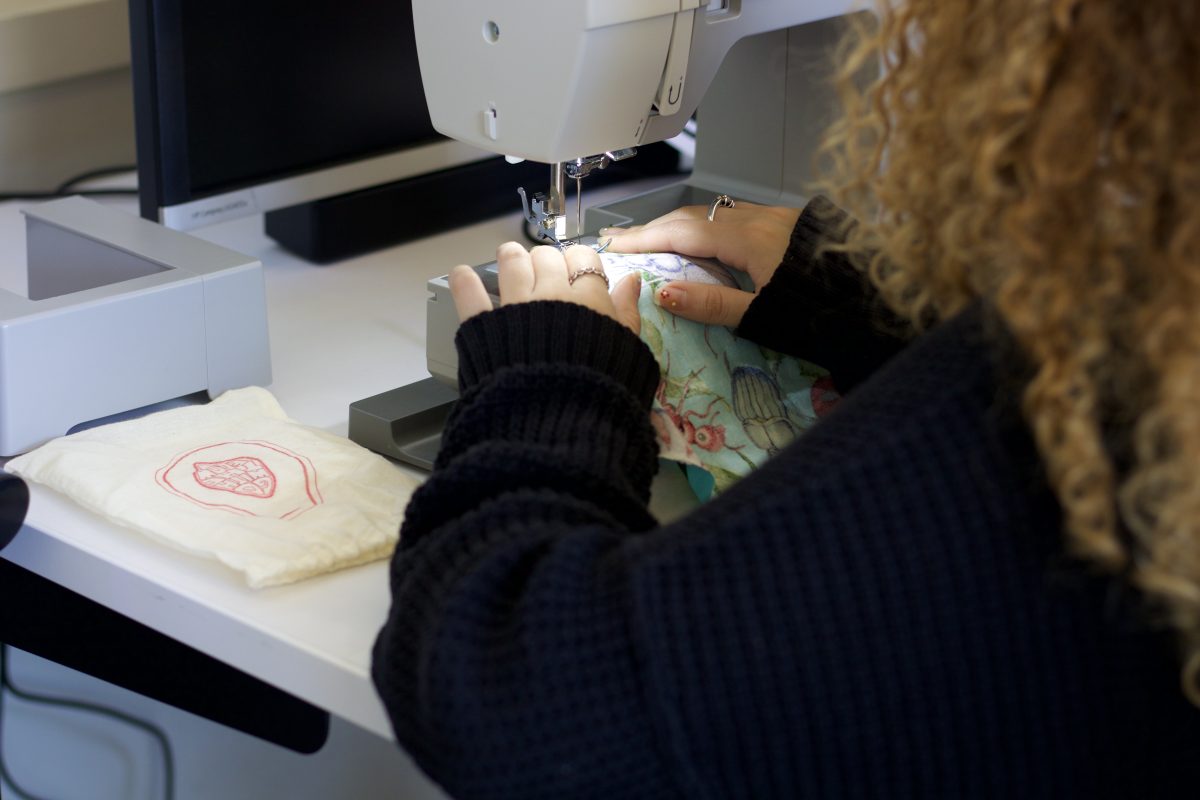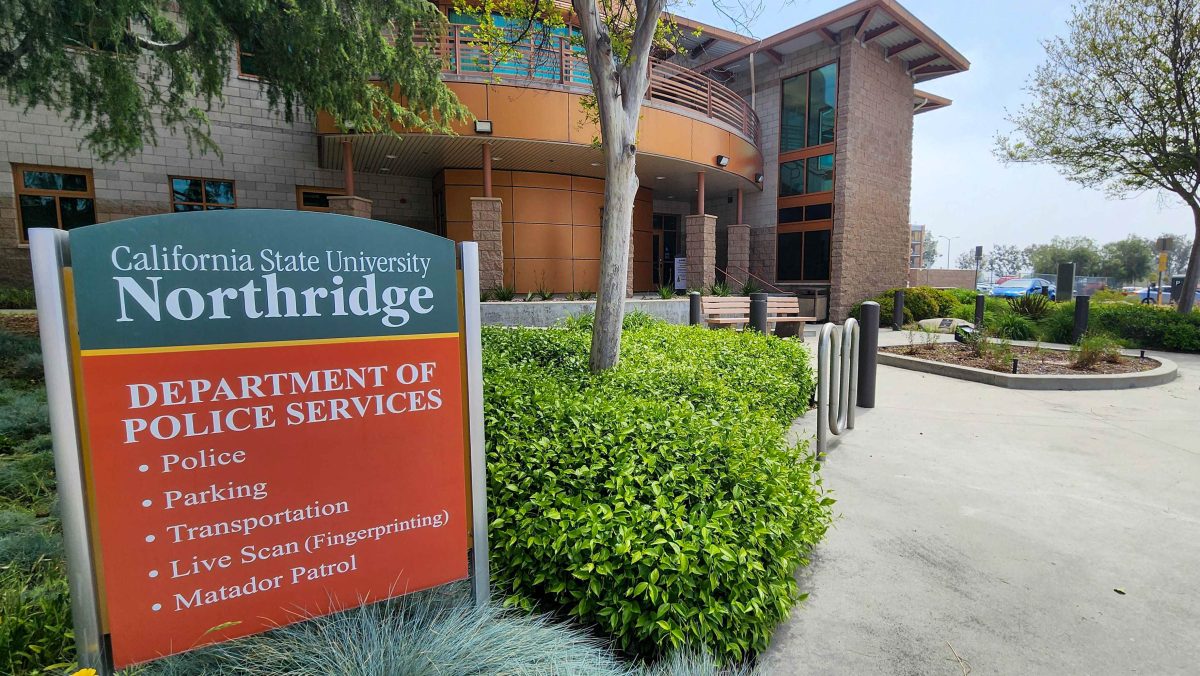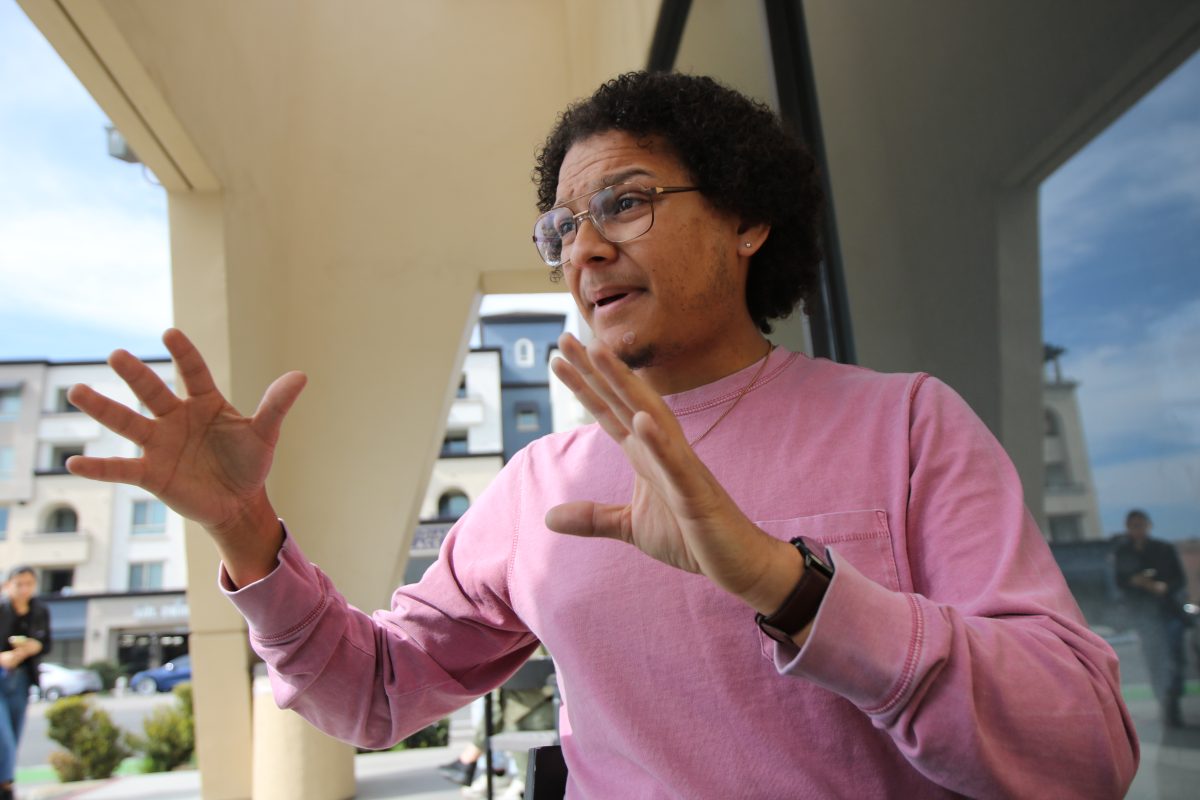
Dr. William Ned Friedman spoke to CSUN students about the legacy of Charles Darwin’s famous 1859 book, “The Origin of Species,” and the theory of evolution, Friday Sept. 11 in Eucalyptus Hall.
“On The Origin of Species” convinced the scientific community at large of evolution. However, since it was read by the general public, its reach went beyond the sciences.
“He didn’t convince the world by writing his big species book or even the scientific community for that matter,” said Friedman, an evolutionary biologist at the University of Colorado, Boulder. “He wrote a popular book which easily read and is passionate. It actually has some great romantic passages.”
Friedman also adds that the reason Darwin was able to communicate so well is because he truly understood the subject and the significance of the subject. Therefore, he knew how to interpret it effectively.
The lecture also focused on idea that Darwin was not the first one to claim evolutionary ideals. After the publication of his book he was constantly criticized for not crediting his predecessors.
“Within a month and half of publication, three people had written Darwin saying ‘you forgot to mention that you weren’t the first to actually come up with ideas that have to do with evolution,’” Friedman said.
Darwin’s personal defense was that the task did not belong to him, but rather scientific historians. He also stated in a letter to a colleague that his health had prevented him from addressing the issue.
“I was so much out of health that when I was writing my book that I grudge every hour of labor,” Darwin wrote in the letter. “Therefore made no process of previous opinion. I have now written a preface which I give a very brief sketch.”
This “historical sketch” was inserted as a preface to every edition after the second edition. The sketch is intended to be a short “history of opinions” on the origins of species question before Darwin had presented his own theory on evolution.
“He was a real human being,” said Friedman laughing. “He was jealous of others credits, a sloppy historian and that is what made him so loveable.”
Darwin’s concept of evolutionary adaptation through natural selection became central to modern evolutionary theory, now the unifying concept of the life sciences. This year marks the 150th anniversary of the publication of his book, “The Origin of Species.”
Friedman’s lecture, “Evolution Before Darwin,” is part of the weekly biology colloquium, academic seminars that discuss particular biological topics, sponsored by Department of Biology, Minority Biomedical Research Support and Minority Access to Research Careers Program.
Future seminars include the Physiological Ecology of Birds at Mono Lake, on September 25th with Dr. Hugh Ellis of the University of San Diego’s Department of Biology and the Genetics and Physiology Biology of Plant Embryos on October 2 with Dr. Ruth Finkelstein from the Genetics and Physiology Dept. Molecular & Developmental Biology department of University of California, Santa Barbara.
More information can be found at the Department of Biology office, located in Eucalyptus Hall, room 2102.





